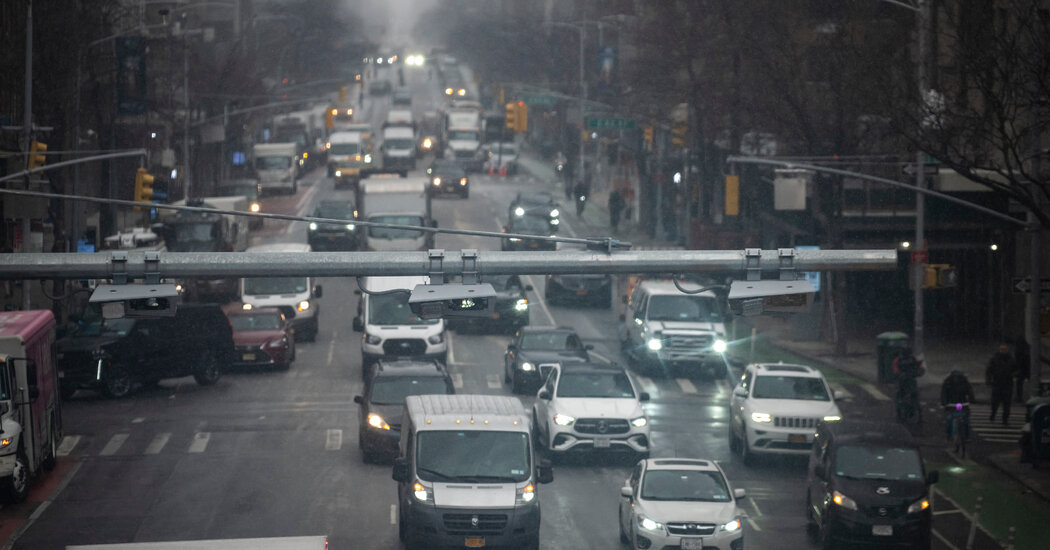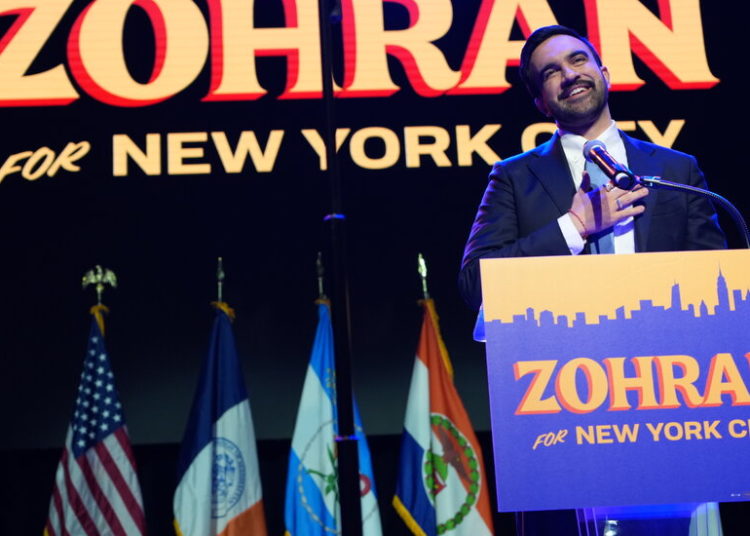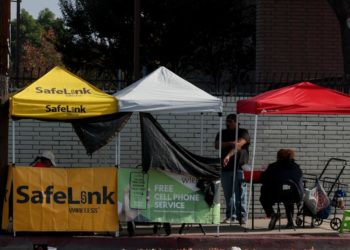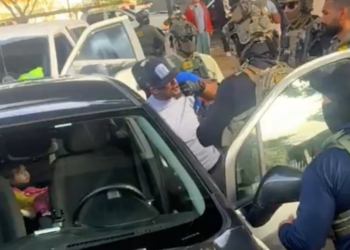The Trump administration inadvertently showed its cards when its own lawyers released a confidential document expressing grave doubts about their legal fight with New York to end congestion pricing.
But does that mean Washington’s whole case will go bust?
It started when lawyers representing the U.S. Department of Transportation filed a detailed memo in federal court that laid out why the agency was likely to lose. The memo, which should not have been filed because it is subject to attorney-client privilege, was on the docket for less than an hour Wednesday night before it was pulled.
But by Thursday morning, the letter had been widely shared online. Hours later, the agency effectively fired its legal team of lawyers from the U.S. attorney’s office for the Southern District of New York after suggesting that the disclosure may have been politically-motivated sabotage. A spokesman for the Southern District said the disclosure was an accident.
It is now up to a federal judge whether the 11-page letter, which provides a road map for blowing up the Transportation Department’s legal defense, should be permanently sealed and excluded from the court proceedings.
On Thursday, backers of congestion pricing asked the court whether the letter might be unsealed and made part of the case. Some legal observers said, however, that whatever the court decides about the letter, the better question is whether the damage is already done.
“The cat’s out of the bag,” said Michael Gerrard, a professor at Columbia Law School who supports congestion pricing. “Everyone knows the contents of the letter, regardless of whether it’s sealed.”
In February, the transportation secretary, Sean Duffy, said his agency was withdrawing approval for the plan, which had been authorized by the Biden administration. He demanded that the Metropolitan Transportation Authority, which operates congestion pricing, stop the tolls. The M.T.A. immediately sued in federal court to prevent Mr. Duffy’s intervention. Gov. Kathy Hochul of New York vowed to keep the toll cameras on.
Mr. Duffy has said congestion pricing goes beyond the scope of the federal program used to authorize it — known as the Value Pricing Pilot Program — because it does not offer a toll-free option for drivers entering the area. He has also argued that revenue from the toll should not be used to subsidize mass transit projects.
But the confidential memo, written by three assistant U.S. attorneys in Manhattan representing the Transportation Department, warned that Mr. Duffy’s arguments were “exceedingly likely” to fail in court.
The lawyers said that neither of Mr. Duffy’s arguments were likely to persuade the court, partly because the federal judge overseeing the M.T.A.’s lawsuit, Lewis J. Liman, had recently dismissed elements of those theories in other cases related to congestion pricing. The government’s lawyers instead urged a new direction.
In response to the letter becoming public, the Transportation Department made the remarkable decision to remove those lawyers from the case and released a statement suggesting that the team was either incompetent or motivated by politics. The lawyers, however, apologized in a letter to the judge and asked that the file be sealed.
Mr. Duffy and the Transportation Department will now be represented by lawyers from the civil division of the Department of Justice in Washington, a team that will have to work quickly to get up to speed on the case.
In a news media interview on Thursday, Mr. Duffy downplayed the release of the memo, adding that he remained confident in his department’s legal strategy. He said that the congestion pricing toll remains “fundamentally unfair.”
A spokeswoman for the agency on Friday said there would be “no change in Secretary Duffy’s fight to terminate the congestion pricing program.” Mr. Duffy has already threatened to withhold federal funding and approval for a number of transportation projects in the city and state, if Ms. Hochul does not comply with his demands.
Judge Liman is expected to decide after next week whether the memo should be included in the case. Supporters of congestion pricing, including two nonprofits involved with the lawsuit, have questioned whether it makes sense to seal the document.
“Once it is public, it necessarily remains public,” Dror Ladin, a lawyer representing the supporters, wrote in his letter to the court.
The release of the memo was the latest setback for Mr. Duffy, who has sought to halt congestion pricing despite a chorus of legal experts who have said his agency lacks the authority to do so.
The congestion pricing program, the first of its kind in the nation, charges most drivers $9 to enter Manhattan below 60th Street during peak traffic, to cut down on gridlock and pollution and raise funds for the region’s mass transit system. After years of federal, state and local review, the plan was approved under the Biden administration in November 2024, and tolling began on Jan 5.
President Trump has promised to end the toll, arguing, without evidence, that it would harm the local economy.
The disclosure of the memo, while embarrassing and “a lawyer’s nightmare,” was unlikely to be a deciding factor in the M.T.A.’s lawsuit, said Eric A. Goldstein, a senior attorney for the Natural Resources Defense Council, which supports congestion pricing.
Mr. Goldstein added that very little in the memo was new or surprising, and that Judge Liman was already well versed on the issue after presiding over four other congestion pricing cases brought by opponents.
One telling detail to emerge from the letter, however, was that the Department of Transportation might try to terminate its approval of congestion pricing by citing “changed agency priorities.”
But, for that argument to prevail, the judge would have to agree that the federal government can renege on commitments made by a previous administration, said Joe Carlile, an appropriations consultant and former associate director at the Office of Management and Budget during the Biden administration.
“I don’t know if it’s an open-and-shut case, one way or the other,” Mr. Carlile said, adding that if this strategy works, it could have a chilling effect on private sector investment in government projects.
“That would throw long-term capital projects into disarray,” he said.
Several lawyers said the Trump administration could still prevail against the tolling program in court, though not necessarily before Judge Liman.
Corey Bearak, a lawyer who advises clients on public policy issues and opposes congestion pricing, said that mistakes happen and that by replacing the lawyers in the case, the Trump administration had sent a message “that they are serious about the litigation.” He urged the Trump administration to consider other legal avenues, including joining efforts by opponents who are also fighting congestion pricing in state court.
Brian D. Carr, a lawyer for the Trucking Association of New York, which filed one of the lawsuits opposing congestion pricing before Judge Liman, said he has not read the memo out of principle. He said he has previously received a confidential email from other lawyers by mistake that might have helped his case.
“I immediately delete it because there but for the grace of God go I,” he said. “I would hope that I would get the same respect from an adversary.”
Susan C. Beachy contributed research.
Stefanos Chen is a Times reporter covering New York City’s transit system.
Winnie Hu is a Times reporter covering the people and neighborhoods of New York City.
The post Can Trump Still Kill Congestion Pricing After U.S. Lawyers Showed Doubt? appeared first on New York Times.




